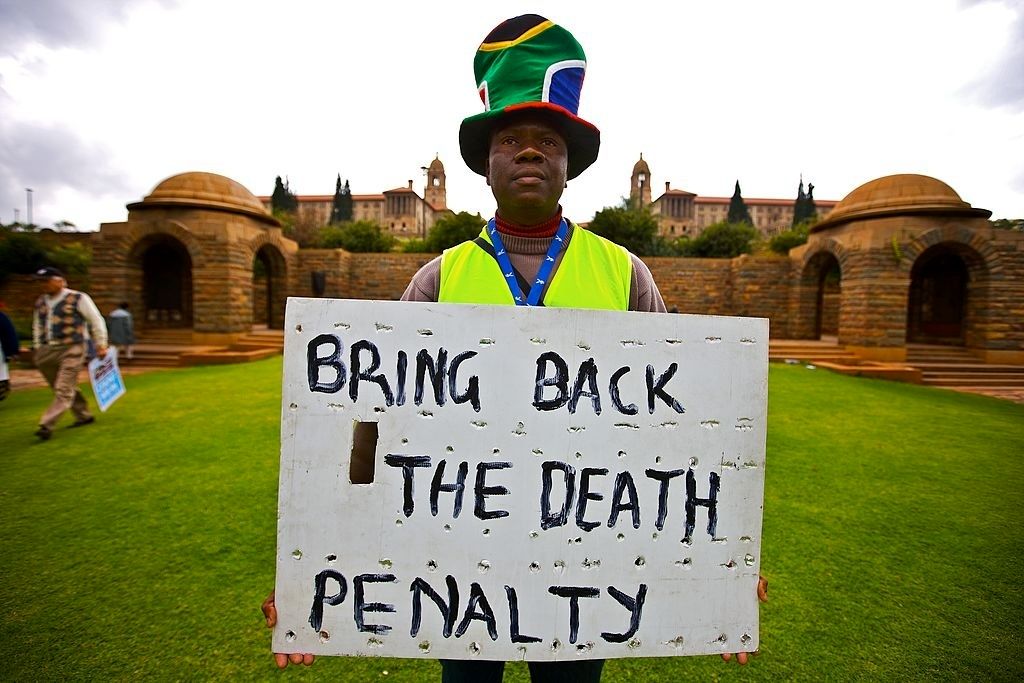South Africans are Calling for the Death Penalty in Response to Violence Against Women
This comes after the horrific murder of several young South African women.
Brent Stirton/Getty Images
The past few days have been a tumultuous time for South Africans. Uyinene Mrwetyana, a 19-year-old student from the University of Cape Town, went missing a little over a week ago. Yesterday, a 42-year-old man was charged with her rape and murder, a crime he claims to have allegedly committed in the Post Office after his colleagues had gone home. Last week Friday, South African boxing champion, Leighandre "Baby Lee" Jegels, was shot and killed, allegedly by her policeman boyfriend. As if that weren't enough, 6-year-old Amy-Lee de Jager, was abducted just outside of her school by four men who then demanded a R2 million ransom (USD 131 000). Fortunately, de Jager was recently found unharmed and returned to her family.
In light of the unceasing violence against women, South Africans are calling for the return of the death penalty.
BUSINESSTECH reports that over 300 000 South Africans have signed a petition calling for the return of the death penalty. South Africans are understandably frustrated by the increasing violence against women and a justice system failing to apprehend perpetrators while further victimizing women.
The Daily Nightmare of Being a South African Woman Shows No Signs of Ending
However, responding to voter's questions before the May elections this year, President Cyril Ramaphosa said that, "Our constitution has enshrined the right to life. This means that the state should not be the one to terminate a life. The surge in criminality should be addressed in other ways rather than ending people's lives." Constitutional law expert, Pierre De Vos, added that, "To endorse the death penalty is to endorse state violence and the brutality that necessarily forms part of premeditating killing."
South African women have taken to social media using #AmINext to talk about how frightened they are to do even the most ordinary tasks by themselves.
While Ramaphosa has not addressed the country, especially after numerous calls for a national state-of-emergency to be declared, the government tweeted a response which many have criticized and condemned for its victim-blaming undertones.
